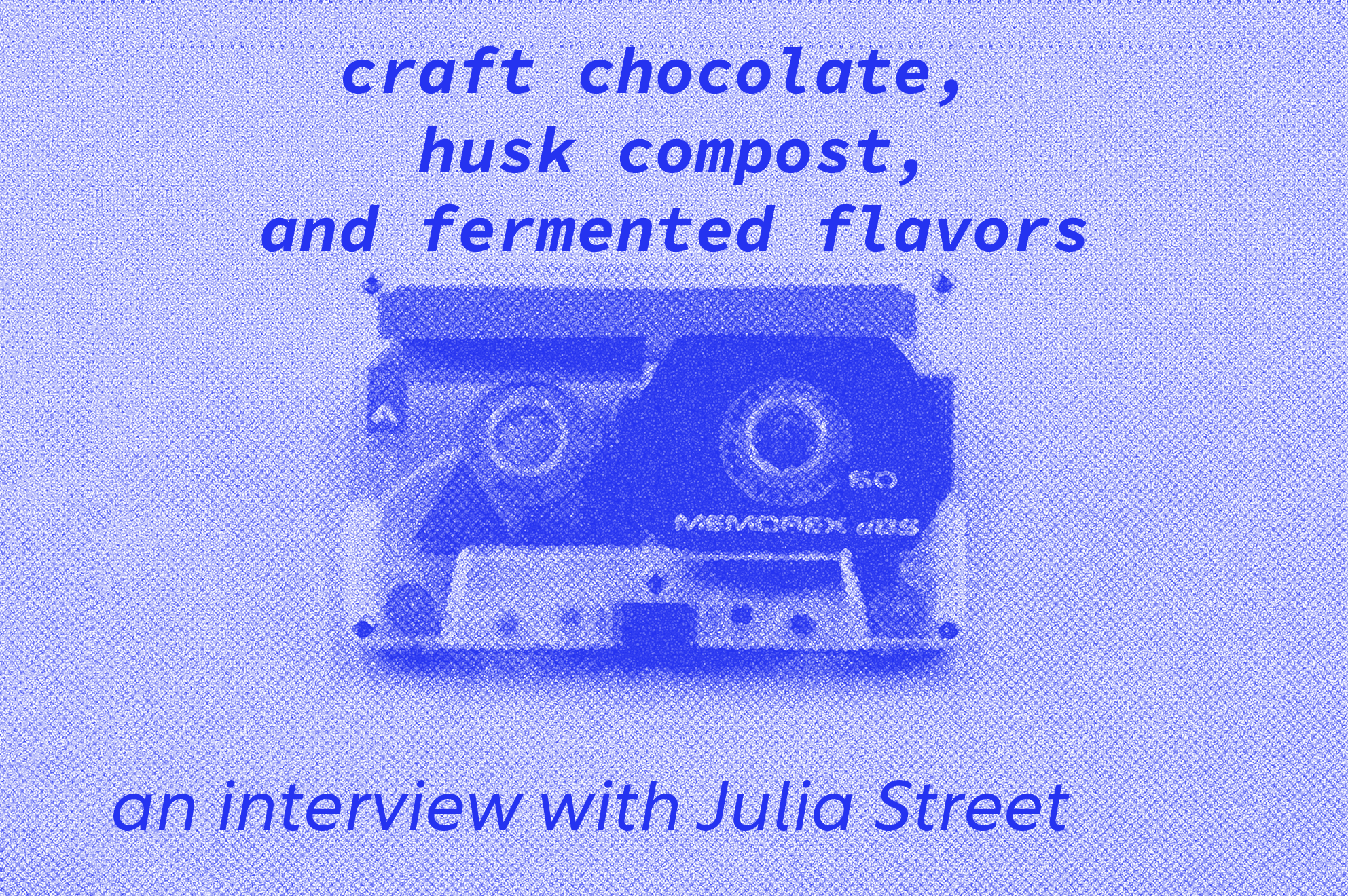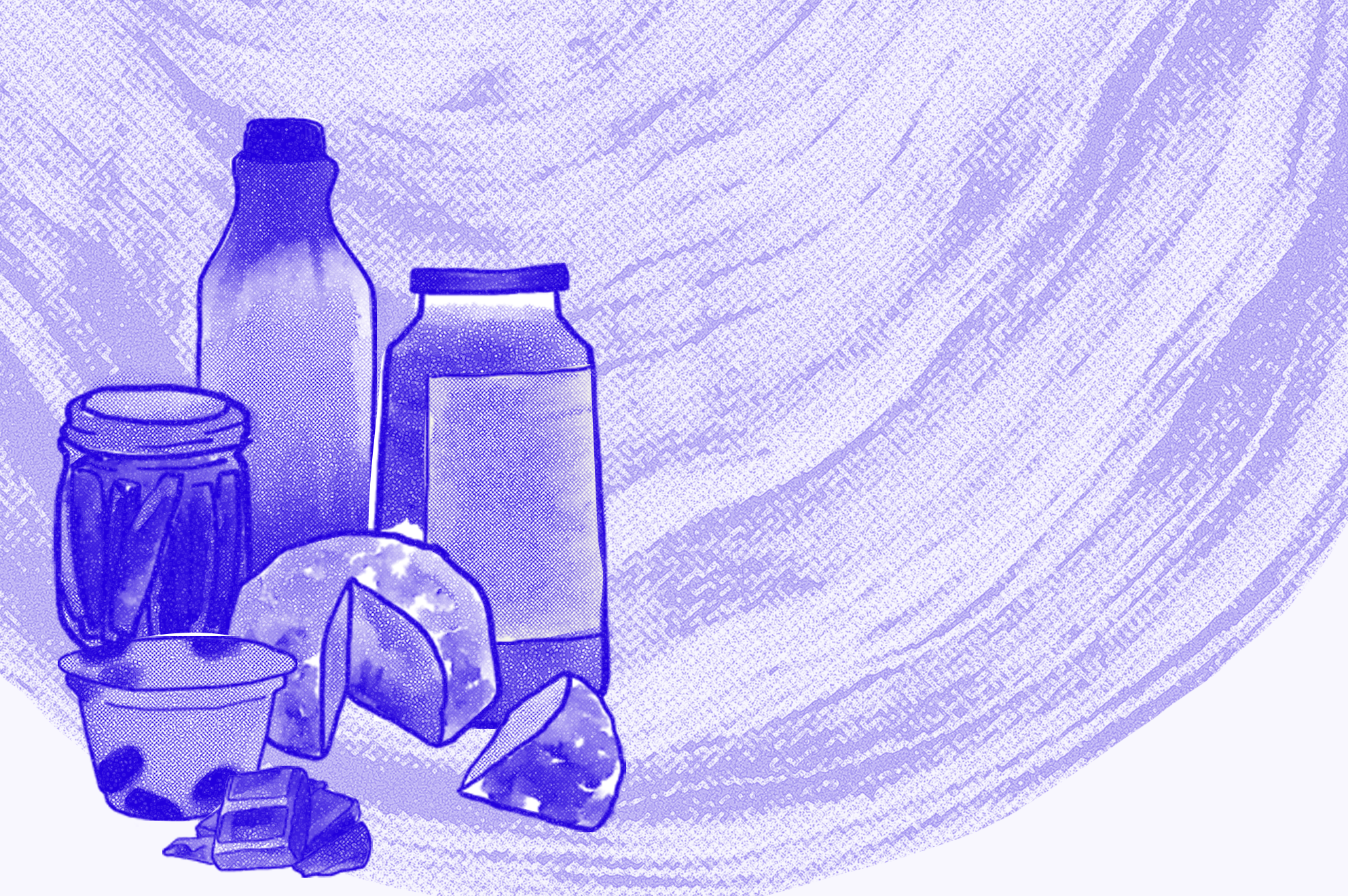16 JULIA STREET
“It's really interesting to see where the fermentation takes the flavor naturally. As a small craftsperson, things may vary from batch to batch because I'm small, and these bars are made by hand. I don’t have the controls you find at larger manufacturers.”
Read more
22—4/19
Aud—45456
︎
15 EXPLORING FERMENTATION: a zine
Read more
“This guide is designed to outline the basics of food fermentation and flavor, providing a framework of how microbes transform foods and encouraging you to start your own fermentation journey."
Read more
22—6/7
Wri—2218
Wri—2218
︎
14 HYBRID RESPIRATION:A new method of energy harvest by L. plantarum
“Hybrid respiration is dependent on the presence of quinones and extracellular electron acceptors like iron, both typically present in dairy and plant foods”
Read more
“Hybrid respiration is dependent on the presence of quinones and extracellular electron acceptors like iron, both typically present in dairy and plant foods”
Read more
22—3/31
Wri—2218
Wri—2218
︎
13 RED WINE
Ingredients: grapes
Taste: varying in flavor, tannic, sweet, alcoholic
Popular in: global
Time: 3 months+
Dominant microbes: Yeast and lactic acid producers
Tools: large vessel, bottles
Read more
Ingredients: grapes
Taste: varying in flavor, tannic, sweet, alcoholic
Popular in: global
Time: 3 months+
Dominant microbes: Yeast and lactic acid producers
Tools: large vessel, bottles
Read more
22—06/07
Sac—47700
Sac—47700
︎
12 MICROBIAL TERROIR: How to think of community assembly in food fermentation
Read more
“We must look at microbial ecology to describe the way communities are
shaped in food fermentation.”
shaped in food fermentation.”
Read more
22—2/1
Wri—2218
Wri—2218
︎
11 MACKLIN CASNOFF
Read more
“It represents the climate and the rainfall and the soil conditions of that specific year in, I think this really ephemeral way that I think is really beautiful. So that's maybe that's honestly how it started to fall in love with fermentation through cider and other fermented foods.”
Read more
22—1/27
Aud—45456
Aud—45456
︎
10 KEFIR
Ingredients: milk
Taste: creamy, tart
Popular in: Eastern Europe
Time: 24+ hours
Dominant microbes: L. kefiranofaciens and L. kefiri
Tools: jar, coffee filter cover
Read more
Ingredients: milk
Taste: creamy, tart
Popular in: Eastern Europe
Time: 24+ hours
Dominant microbes: L. kefiranofaciens and L. kefiri
Tools: jar, coffee filter cover
Read more
21—12/18
Lac—47700
Lac—47700
︎
09 ELI GERRICK
“Mice eat their own poop, or the poop of their friends, the original
fermented food”
Read more
“Mice eat their own poop, or the poop of their friends, the original
fermented food”
Read more
21—12/16
Aud—45456
Aud—45456
︎
08 FILMJÖLK
Fermented milk
Ingredients: milk
Taste: buttery, cheesy
Popular in: Northern Europe
Time: 24 hours
Dominant microbes: Various Lactobacillus strains
Tools: jar, coffee filter cover
Read more
Fermented milk
Ingredients: milk
Taste: buttery, cheesy
Popular in: Northern Europe
Time: 24 hours
Dominant microbes: Various Lactobacillus strains
Tools: jar, coffee filter cover
Read more
21—12/18
Lac—1150
Lac—1150
︎
07 ELISA CAFFREY
Read more
“It is this combination of the microbes, the environment, and the raw materials that they're starting with and how all of those interplay in order to create a final product that we enjoy.”
Read more
22—12/21
Aud—45456
Aud—45456
︎
06 RED CABBAGE SAUERKRAUT
Fermented red cabbage
Ingredients: red cabbage, salt
Taste: primarily acidic, pickley, and salty, can be slightly sweet
Popular in: Northern/Eastern Europe
Time: 2-4 weeks
Dominant microbes: Lactic acid producers
Tools: crock/jar, weight
Read more
Fermented red cabbage
Ingredients: red cabbage, salt
Taste: primarily acidic, pickley, and salty, can be slightly sweet
Popular in: Northern/Eastern Europe
Time: 2-4 weeks
Dominant microbes: Lactic acid producers
Tools: crock/jar, weight
Read more
21—12/18
Lac—3390
Lac—3390
︎
05 TEMPEH
Mold fermented soybean cakes
Ingredients:soybean
Taste: earthy, absorbs other flavors well
Popular in: Indonesia
Time: 2 days-3 months
Dominant microbes: Rhizopus oligosporus or Rhizopus oryzae
Tools: banana leaves or ziplock bag, incubator
Read more
Mold fermented soybean cakes
Ingredients:soybean
Taste: earthy, absorbs other flavors well
Popular in: Indonesia
Time: 2 days-3 months
Dominant microbes: Rhizopus oligosporus or Rhizopus oryzae
Tools: banana leaves or ziplock bag, incubator
Read more
21—12/18
Rhi—23700
Rhi—23700
︎
04 HANNAH WASTYK
Read more
“The microbes are a vessel for chemical factories in your gut, but what they are actually producing is what is causing the effects”
Read more
21—09/03
Aud—45456
Aud—45456
︎
03 VIILI
Fermented milk
Ingredients: milk
Taste: sharp and buttery flavor, stringy or ropy texture
Popular in: Finland, northern Europe
Time: 12-48 hours
Dominant microbes: Various Lactobacillus strains and Geotrichum candidum (yeast)
Tools: jar, coffee filter cover
Read more
Fermented milk
Ingredients: milk
Taste: sharp and buttery flavor, stringy or ropy texture
Popular in: Finland, northern Europe
Time: 12-48 hours
Dominant microbes: Various Lactobacillus strains and Geotrichum candidum (yeast)
Tools: jar, coffee filter cover
Read more
21—12/18
Lac—4420
Lac—4420
︎
02 SAUERKRAUT
Fermented cabbage
Ingredients: common cabbage, salt
Taste: primarily acidic, pickley, and salty, can be slightly sweet
Popular in: Northern/Eastern Europe
Dominant microbes: Lactic acid producers
Tools: crock/jar, weight
Read more
Fermented cabbage
Ingredients: common cabbage, salt
Taste: primarily acidic, pickley, and salty, can be slightly sweet
Popular in: Northern/Eastern Europe
Dominant microbes: Lactic acid producers
Tools: crock/jar, weight
Read more
21—12/18
Lac—42200
Lac—42200
︎
01 A HISTORY OF FERMENTATION: How microbiology influenced our relationship to fermented food
Read more
“By changing our relationships to food fermentation and embracing the complexities of the microbial landscape, we will be able to see beyond the role of individual microbes.”
Read more
21—11/30
Wri—2218
Wri—2218









